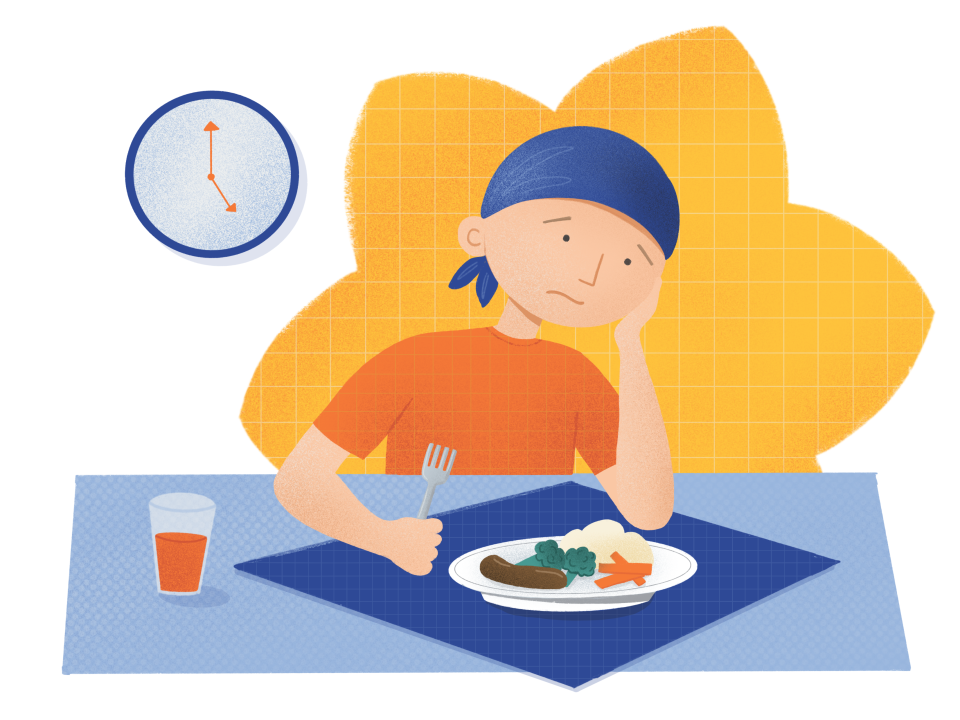Eating difficulties / weight loss in children

Many things can affect your child’s appetite when they have cancer. For example, feeling sick (nausea), food tasting different, pain, constipation or having a sore mouth. Fatigue, anxiety and depression can also affect your child’s appetite.
It’s important to try and manage eating problems. If your child is not eating well, they may lose weight. Eating well and avoiding weight loss can help your child to:
- Keep up their energy
- Cope better with treatment
- Recover faster
What should I do?
Get help with any side-effects
Tell your medical team about any side-effects that are making it hard for your child to eat. For example:
- Nausea or vomiting
- Constipation
- Sore mouth
- Fatigue
- Taste changes – for example, food may taste different, bitter or metallic
- Pain
Try to help them eat
- Offer lots of different foods – your child’s taste may change and they may prefer something different to usual. Try to find out which foods taste best to them.
- Encourage the child to eat when they’re hungry.
- Offer small meals and snacks throughout the day rather than 3 big meals.
- Go for high-calorie, high protein foods.
- Make mealtimes enjoyable. Try to eat together as a family and don’t rush your child or force them to eat.
- Limit meal times and try not to nag or argue about food.
- Give your child drinks that have some nutrition, such as milk shakes and smoothies.
- Getting some fresh air and exercise may help your child’s appetite.
- Speak to the hospital dietitian for advice and support.
Enteral / tube feeding
If your child can’t eat normally, the medical team / dietitian will discuss with you the best type of nutritional support for your child. Nasogastric (NG) and PEG tubes are used for nutritional support but can also be used for some medicine and for extra fluids.
Nasogastric tube
This is where a soft tube that is passed through the nose into the stomach. Nasogastric tubes are usually temporary and are removed when eating is back to normal.
PEG tube
A tube passed through the wall of your child’s abdomen (tummy) into their stomach to give liquid food directly into their stomach. PEG tubes are usually temporary but can be left in permanently, if needed.
Nutrition into a vein: Total parenteral nutrition (TPN)
A solution containing all the calories, protein, vitamins, minerals, and fluids given to your child through a central line. Total parenteral nutrition is only given when your child is in hospital.
For more information
Phone
1800 200 700



